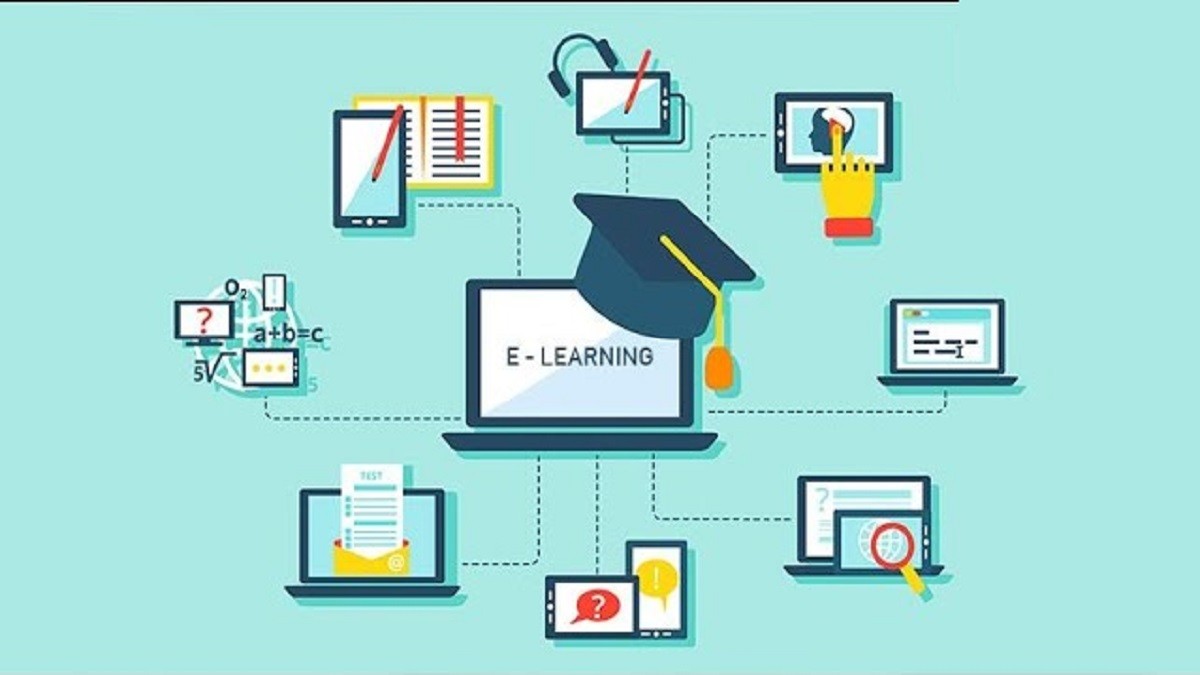

STTA -Developing a National Occupational Standard - Artificial Intelligence Eng.
8/7/2025 www.akhtaboot.comAmman, Jordan
others
Job requirements
-
Intermediate (Experienced non manager)
Description
Consultancy for Developing a National Occupational Standard (NOS) - Artificial Intelligence Engineer
The Youth Grow Activity (YGA)
Scope of work
- PROJECT BACKGROUND
About Youth Grow Activity:
Launched in 2023, Youth Grow Activity (YGA) is a five-year US Government (USG)-funded initiative that aims to transform the economic trajectory of Jordan’s youth while strengthening resilient, opportunity-rich local systems to promote long-term stability and security. YGA’s reflects a growing strategic consensus: youth economic empowerment is no longer just a development objective; it is a tool for socioeconomic prosperity. YGA tackles the root causes of economic exclusion and youth unemployment—key drivers of social unrest, destabilized vulnerable communities, and brain drain and migration. By aligning local and national economic opportunities with shared regional and global strategic interests, YGA leverages economic empowerment as a force to foster resilient partnerships that help co-create future-ready systems.
YGA focuses on three core objectives:
- Increased youth access to income-generating opportunities. YGA prepares, inspires, and links youth with opportunities and career pathways that allow them to generate income in growing arenas, including technology-enabled work, remote employment, and enhancing youth-led and youth-serving enterprises growth opportunities.
- Enhanced youth economic leadership through targeted support of youth-led, youth-serving organizations, and youth groups through integrating sustainable practices and procedures for youth economic integration into the local and national ecosystem and enhancing youth's meaningful involvement in decision-making by creating avenues where their voices are heard to shape their support activities that affect their economic progress. This approach allows YGA to support inclusive economic growth that fosters innovation and long-term value creation.
- Strengthened Jordan's youth development system in partnership with youth through enhanced coordination among stakeholders within youth-relevant services and policies and strengthened youth centers' capacity to serve as a connection hub between youth and youth support ecosystems to develop a lasting environment for youth empowerment and engagement.
About Q2IMPACT (QED Group, LLC DBA Q2 Impact)
Q2IMPACT, a QED Group company, brings over 25 years of expertise in data-driven, impact-focused solutions at the intersection of development, diplomacy, and defense. Rooted in this dynamic history, Q2IMPACT leverages cutting-edge technology, data-driven insight, and strategic expertise to tackle today’s most pressing challenges. Evolving with global priorities, Q2IMPACT blends its rich legacy in Monitoring, Evaluation, and Learning (MEL), Collaboration, Learning, and Adaptation (CLA); data analytics; systems strengthening, and adaptive programming with a renewed focus on strategic relevance, economic growth, and national security. Q2IMPACT is the Prime Subrecipient under the USG-funded Youth Grow Activity (YGA) under Agreement No. 72027823CA00003.
- NATIONAL OCCUPATIONAL STANDARDS (NOS) BACKGROUND
Jordan’s labor market is undergoing a profound transformation DRIVEN by digitalization, youth demographic dynamics, and evolving global employment trends. Technology and AI driven freelancing, remote work, and gig economy models have gained traction as flexible, location-independent income-generating avenues, particularly among youth and women, providing alternatives to traditional employment pathways. The COVID-19 pandemic further accelerated the adoption of digital work modalities, prompting both the public and private sectors to explore remote employment options.
Digital occupations such as AI engineering, content creation, translation, digital marketing, virtual assistance, and software development are becoming increasingly attractive to tech-savvy youth in Jordan. In response, government initiatives, donor-supported programs, and private sector interventions have mobilized resources to train and equip young people with digital and entrepreneurial competencies. Jordan’s competitive advantages: including a young, educated, and bilingual workforce, favorable time zone, and increasing internet penetration, position it well to capitalize on the growing global demand for online talent .
Despite this potential, systemic barriers persist. These include limited career guidance, a lack of recognition for freelance and gig roles in the national labor classification system, weak links with labor market demand, inadequate social protection, and the absence of standardized competency frameworks for tech enabled emerging occupations and professions. Without formally recognized National Occupational Standards (NOS), youth face uncertainty navigating these career paths, employers lack clarity in recruitment and contracting, and training providers operate without guidance for curriculum design.
In response, the Government of Jordan adopted the National Strategy for Human Resource Development (NSHRD) 2016 - 2025, the Accreditation and Quality Assurance Commission (AQAC)) aimto improve coordination between labor market needs and skills development initiatives. It plays a central role in upgrading occupational standards, aligning vocational training with the National Qualifications Framework (NQF), and strengthening testing, assessment, and trainer certification systems.
AQAC supports the establishment of National Sector Skills Councils (NSSCs); governance bodies composed of employers, government representatives, and worker organizations, which provide leadership on skills development within priority sectors. In collaboration with NSSCs, AQAC leads the development of National Occupational Standards (NOS), which are benchmark tools that define the competencies, knowledge, and attitudes required to perform specific job roles.
Developing NOS for tech-enabled occupations such as AI engineering, freelancing, remote work, and gig economy occupations is critical to formalizing these emerging employment pathways. Standardized NOS will enhance labor market transparency, improve the relevance of training curricula, support job matching, and ensure quality assurance across employment and training systems.
- SCOPE OF WORK
Purpose of the Assignment: Under the supervision of the Youth Grow Activity (YGA) and in close coordination with AQAC, the Consultant will lead the development of National Occupational Standards for the occupation of AI Engineer. This assignment must align with AQAC Standard Operating Procedures (SOPs), the International Standard Classification of Occupations (ISCO), and the Arab Standard Classification of Occupations. The consultant will define occupational functions, engage technical experts, identify core competencies, and develop and validate NOS documents with private sector input. The consultant will also produce competency charts and submit final NOS documents following review by AQAC.
Key Responsibilities:
- Planning and Desk Review:
- Review relevant national and international NOS documents, AQAC SOPs, and sector studies.
- Develop an inception report and work plan for NOS creation, including methodology and timelines.
- Stakeholder Engagement:
- Coordinate with AQAC to ensure participation of sector professionals and NSSC members.
- Facilitate consultations with employers, digital platform representatives, training providers, and freelancers.
- Facilitate a workshop for NOS drafting.
- Submit competency charts for the AI Engineering occupation based on workshop outcomes.
- Facilitate a second workshop with the committee of the occupation to write the NOS.
- NOS Development:
- Develop comprehensive NOS documents for the AI Engineering Occupation, including occupational profile and purpose, key tasks, duties, and responsibilities, required knowledge, skills, and competencies (KSCs), level descriptors in accordance with the National Qualification Framework, and performance criteria and assessment guidelines.
- Quality Assurance and Alignment:
- Ensure compliance with AQAC SOPs, ISCO, and the Arab occupational framework.
- Incorporate stakeholder feedback and validation input.
- Submit final NOS to YGA and AQAC, addressing all required revisions.
- Reporting and Documentation:
- Submit progress reports and final NOS packages.
- Submit a final report detailing methodology, stakeholder engagement, and recommendations.
- LEVEL OF EFFORTS AND TIMEFRAME:
- The designated level of effort for this consultation is up to 12 working days (120 working hours), delivered over 30 calendar days, starting from the date of signing the contract.
- REQUIRED QUALIFICATIONS:
- Bachelor’s degree in economics, social sciences, or another related field, a master’s degree is a plus.
- Excellent command of the English and Arabic languages.
- 5 years of working experience in the TVET sector and other relevant fields of skills development.
- Previous experience in working with government bodies.
- Previous experience in creating NOS and/or a DACUM certificate.








